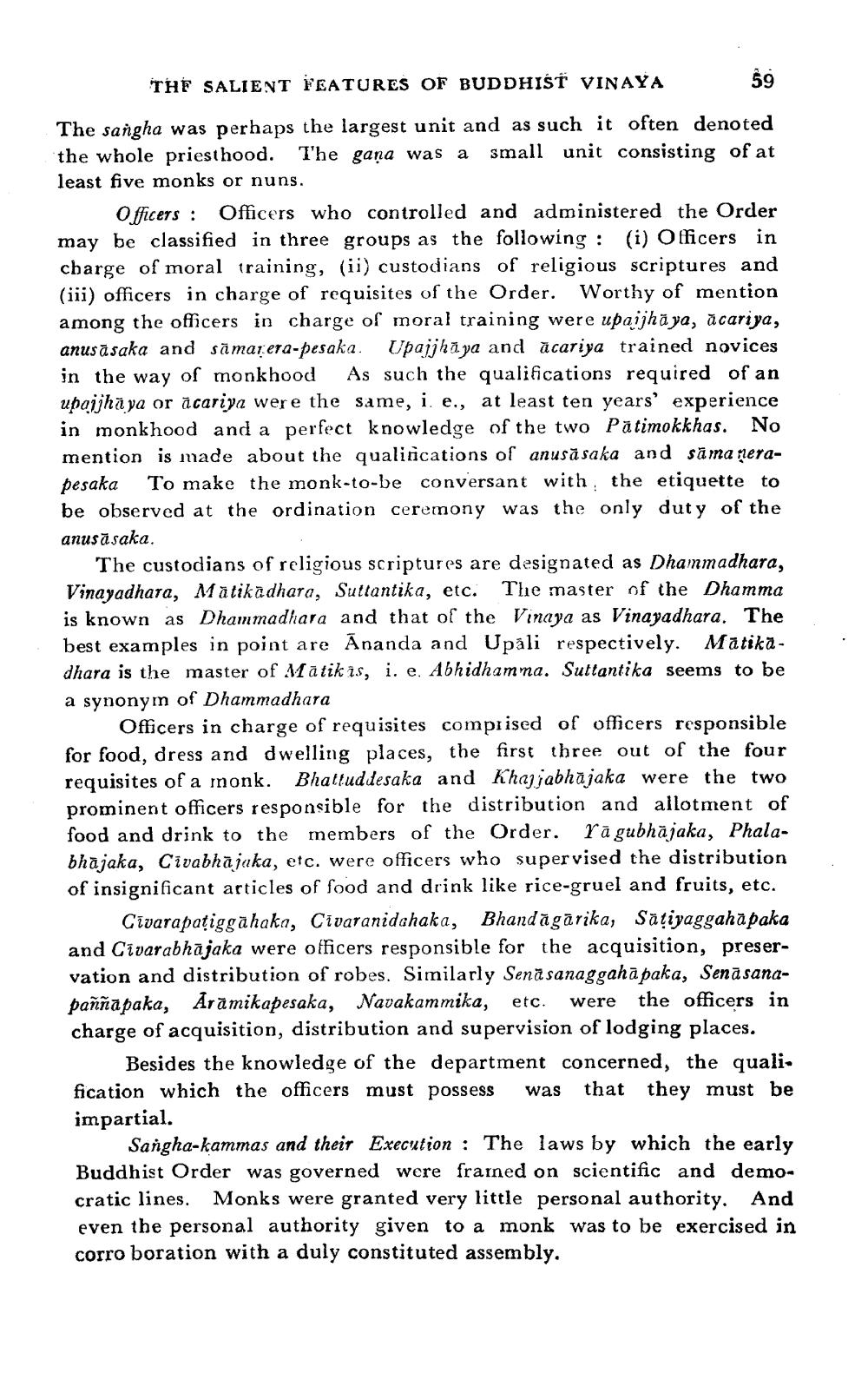________________
THE SALIENT FEATURES OF BUDDHIST VINAYA
59
The sangha was perhaps the largest unit and as such it often denoted the whole priesthood. The gana was a small unit consisting of at least five monks or nuns.
Officers : Officers who controlled and administered the Order may be classified in three groups as the following: (i) Officers in charge of moral training, (ii) custodians of religious scriptures and (iii) officers in charge of requisites of the Order. Worthy of mention among the officers in charge of moral training were upaijhāya, ăcariya, anusāsaka and samarera-pesaka. Upajjhāya and acariya trained novices in the way of monkhood As such the qualifications required of an upajjha ya or äcariya were the same, i. e., at least ten years' experience in monkhood and a perfect knowledge of the two Pātimokkhas. No mention is made about the qualifications of anusā saka and sāma nerapesaka To make the monk-to-be conversant with the etiquette to be observed at the ordination ceremony was the only duty of the anusāsaka.
The custodians of religious scriptures are designated as Dhammadhara, Vinayadhara, Matikadhara, Sutlantika, etc. The master of the Dhamma is known as Dhammadhara and that of the Vinaya as Vinayadhara. The best examples in point are Ananda and Upali respectively. Matikadhara is the master of Matik is, i. e. Abhidhamma. Suttantika seems to be a synonym of Dhammadhara
Officers in charge of requisites comprised of officers responsible for food, dress and dwelling places, the first three out of the four requisites of a monk. Bhattuddesaka and Khajjabhājaka were the two prominent officers responsible for the distribution and allotment of food and drink to the members of the Order rāgubhājaka, Phalabhajaka, Civabhajaka, etc. were officers who supervised the distribution of insignificant articles of food and drink like rice-gruel and fruits, etc.
Civarapatiggahaka, Civaranidahaka, Bhandăgārika, Satiyaggahā paka and Civarabhājaka were officers responsible for the acquisition, preservation and distribution of robes. Similarly Senasanaggaha paka, Senā sanapaññāpaka, Arāmikapesaka, Navakammika, etc. were the officers in charge of acquisition, distribution and supervision of lodging places.
Besides the knowledge of the department concerned, the quali. fication which the officers must possess was that they must be impartial.
Sangha-kammas and their Execution : The laws by which the early Buddhist Order was governed were framned on scientific and democratic lines. Monks were granted very little personal authority. And even the personal authority given to a monk was to be exercised in corro boration with a duly constituted assembly.




